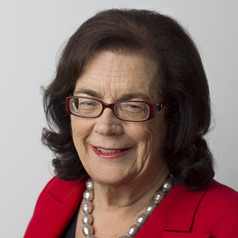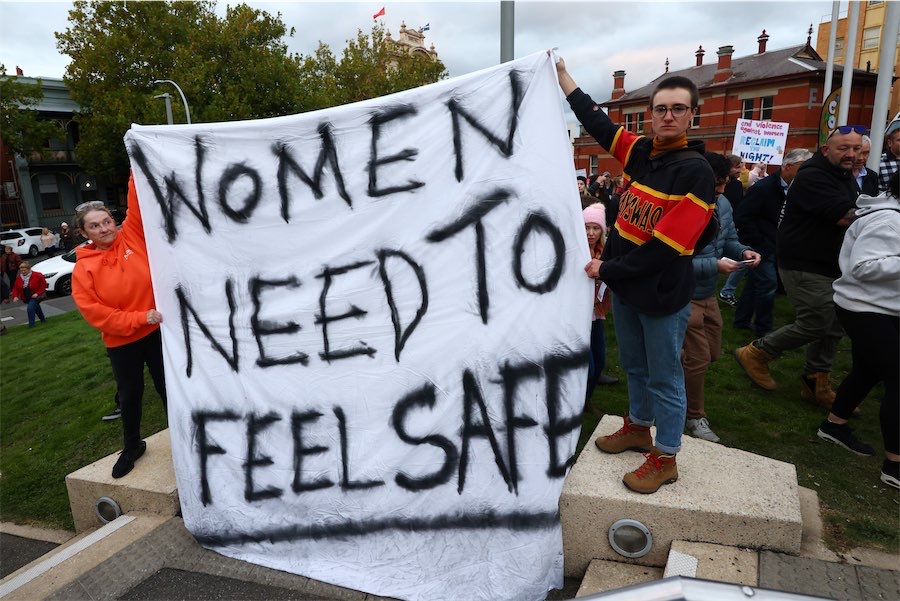By Michelle Grattan, University of Canberra
FAIRFAX journalist Tony Wright tweeted on Thursday: “In-air bombing operational details against enemy on the bullhorn, on-water operational matters against leaky boats at 6 fathoms.”
It’s a pretty accurate summation of the government’s broad approach: maximum publicity for anything considered likely to play positively in political terms, and deep secrecy (at least until it is ready to boast about a victory) on matters it doesn’t want to go to.
Of course the public should be kept informed about the Australian military operations in Iraq, but that doesn’t alter the fact the government would believe that getting this story out is useful as part of its national security narrative.
That narrative has been hyped up on the home front this week, with Tony Abbott pledging to stop “hate preachers” coming into the country and raising the possibility of banning radical Islamist group Hizb ut-Tahrir under the foreign fighters anti-terrorism legislation currently before Parliament.
Wassim Doureihi, a spokesman for the group, appearing on ABC’s Lateline, gave the PM further ammunition, when in a Wednesday night shouty head-to-head with presenter Emma Alberici, he refused to condemn the barbaric tactics of the Islamic State.
“This is objectionable, it’s wrong, it’s un-Islamic, it’s un-Australian and I hope he wakes up to himself,” Abbott told 3AW on Thursday morning.
Unfortunately Doureihi is unlikely to “wake up to himself”, and the question remains of how this group and other radical Islamists in Australia are best dealt with.
Abbott put the challenge of Hizb ut-Tahrir in a nutshell: “This is an organisation which is very careful to avoid advocating terrorism but is always making excuses for terrorist organisations.”
That means it might remain out of the grasp of even the planned new law.
Reading the just-released official history of ASIO, one is struck by some parallels, as well as contrasts, in the push to ban Hizb ut-Tahrir and the effort of an earlier Liberal PM, Robert Menzies, to declare the Communist party illegal.
One difference between the threat from radical Islamists within Australia to that posed by the Communists in the 1950s is that the latter were not inclined to violent actions locally. Another is that the Australian Communists were seeking to get control in key organisations, notably trade unions; radical Islamists are not.
But like the Communists, Hizb ut-Tahrir is an arm of an international movement. For it, the main game is not in Australia. For the Communists, only part of the game was local. Also like the Communists, the battle is an ideological one.
Sources close to Abbott say they haven’t heard him opine on the principles involved or the practical aspects of Menzies’ unsuccessful attempt at a ban (it was defeated in a 1951 referendum, which followed the legislation being declared unconstitutional).
The late Alan Missen, vice-president of the Young Liberals at the time (and much later a senator) and a few other Liberals opposed Menzies’ action. Missen wrote: “Have we so little faith in our ability to defeat Communism in a free encounter that we must employ totalitarian methods against them?”
And, according to its official history, even some in ASIO were not unhappy when the referendum was defeated. The ASIO sceptics had less high falutin’ considerations of principle than Missen. They thought the Comms were easier to watch when they were in the open.
Just as the attempt to ban the Communist party was an over-reaction, so would be trying to ban Hizb ut-Tahrir, an organisation infinitely less important in Australia now than the Communist party was then.
Apart from anything else, it would likely be counter-productive, driving the group underground and perhaps elevating its status among some attracted to it.
While Abbott was turning up the rhetoric about Hizb ut-Tahrir and foreign preachers of hate Treasurer Joe Hockey, who was in Washington this week, decided to make an ill-judged political lunge at Bill Shorten.
Replying to a question, Hockey said new spending required for the Middle East commitment was “another good reason for Mr Shorten to immediately pass the remaining measures in the Budget.
“Everything comes at a cost and if Bill Shorten truly is honest about his commitment to deliver bipartisan support in relation to our defence efforts in the Middle East he’ll provide bipartisan support to pay for it.”
For Hockey’s critics it was further evidence of ineptness; for Shorten, a free kick.
Abbott knew better than to be caught that way. Asked about his Treasurer’s comment he said: “To his great credit, opposition leader Bill Shorten has been very bipartisan on this [Iraq conflict]. I’ve had numerous conversations with Bill about this and he is an Australian patriot.”
Abbott appreciates the benefits, especially for the government, of Labor’s bipartisanship on both the overseas operation and the domestic security issues.
It’s less clear whether the Prime Minister has a proper sense of the restraint that is needed from him at the present time, when the talk of terrorism has heightened community tensions in various ways.
One of Abbott’s personal traits is that when he finds something egregious and morally offensive, as he does the Islamic State, he becomes so deeply and personally committed, his indignation reaches such a high level, that he can easily go over the top.
He needs to lower the temperature.
The connections between the local scene and the Islamic State must be carefully watched by the authorities (whose language is notably careful). The Prime Minister himself would be better to say less rather than more, to be a calming voice and not to fan what is a concerning local problem by blowing it out of proportion.
![]()
Michelle Grattan does not work for, consult to, own shares in or receive funding from any company or organisation that would benefit from this article, and has no relevant affiliations.
This article was originally published on The Conversation.
Read the original article.
Who can be trusted?
In a world of spin and confusion, there’s never been a more important time to support independent journalism in Canberra.
If you trust our work online and want to enforce the power of independent voices, I invite you to make a small contribution.
Every dollar of support is invested back into our journalism to help keep citynews.com.au strong and free.
Thank you,
Ian Meikle, editor





Leave a Reply